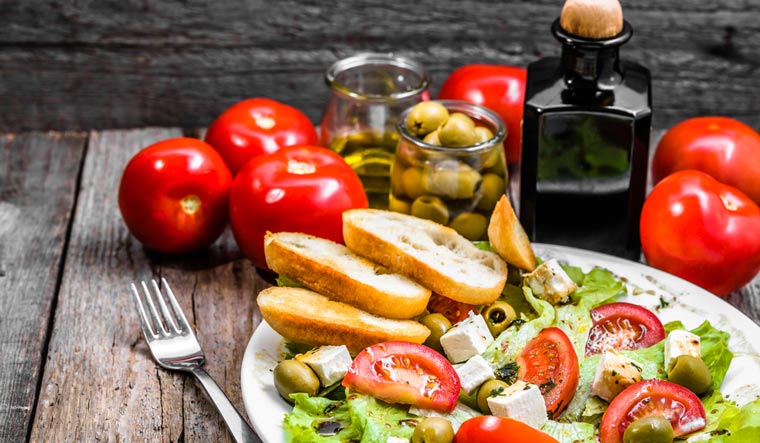Kidney Transplant Recipients Urged To Stick To Mediterranean Diet To Preserve Kidney Health
Source: Thailand Medical News Jan 04, 2020 5 years, 3 months, 2 hours, 31 minutes ago
A research study indicates that following the
Mediterranean diet may help
kidney transplant recipients maintain
transplant kidney function. The findings appear in an January 2020 issue of The Clinical Journal of the American Society of Nephrology.

Even with improvements in the survival of
transplanted kidneys in the early years after transplantation, loss of
kidney function within 10 years still occurs in more than one-third of recipients. Dr António Gomes-Neto, MD (University of Groningen, in the Netherlands) and his colleagues investigated whether adhering to the
Mediterranean diet which focuses on high intake of fish, fruit, vegetables, legumes, nuts, and olive oil together with lower intake of dairy and meat products might help protect transplant recipients'
kidney health.
In the study, 632 adult
kidney transplant recipients with a functioning donor kidney for at least one year completed a food-related questionnaire, and adherence to the
Mediterranean diet was assessed using a 9-point score.
While in an average follow-up of 5.2 years, 119 recipients experienced
kidney function decline (76 of whom developed
kidney failure). The
Mediterranean Diet Score was inversely associated with
kidney function decline and
kidney failure. Each 2-point higher score was associated with a 29% lower risk of
kidney function decline and a 32% lower risk of
kidney failure.
Dr. Gomes-Neto told
Thailand Medical News,"Increasing scientific evidence has demonstrated health benefits of the
Mediterranean Diet on cardiovascular and
kidney health. In this study, we show that
kidney transplant recipients with higher adherence to the
Mediterranean Diet are less likely to experience function loss of their
kidney transplant."
Reference : António W. Gomes-Neto et al, Mediterranean Style Diet and Kidney Function Loss in Kidney Transplant Recipients, Clinical Journal of the American Society of Nephrology (2020). DOI: 10.2215/CJN.06710619
